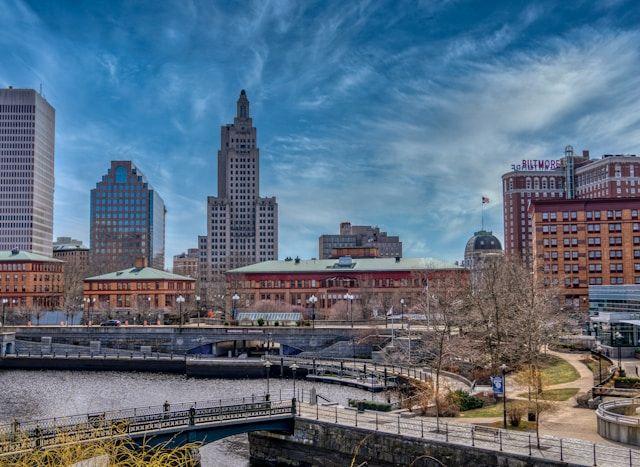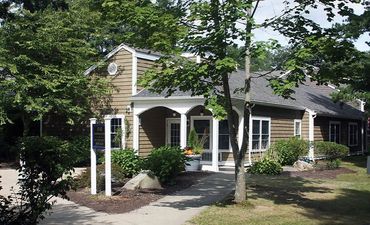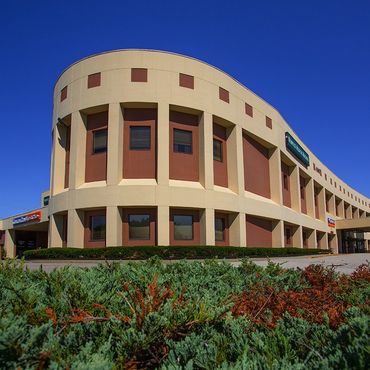
Rhode Island Inpatient and Outpatient Rehab Centers Near Me for Drug and Alcohol Addiction
If you’re a Rhode Island resident struggling with addiction, finding a rehab in Rhode Island may feel like a challenge. There are many factors to take into consideration when choosing drug or alcohol addiction treatment; however, the reviews below can be helpful in making the right choice for you or a loved one.
If you’re ready to get help for your drug or alcohol addiction, use this page to help you find rehab programs in Rhode Island that meet your individual needs and get started on the journey toward recovery today.
Addiction treatment centers in Rhode Island
Open to Travel? Check out Top-Rated Options
All Addiction treatment centers in Rhode Island
Are You Covered For Treatment?
- Providence Rehabs
- Warwick Rehabs
- Pawtucket Rehabs
- Woonsocket Rehabs
- Cranston Rehabs
- Johnston Rehabs
- Middletown Rehabs
- Newport Rehabs
- North Kingstown Rehabs
- East Providence Rehabs
Rehab Insurance Coverage in Rhode Island
Rehab Centers in Rhode Island
Information About Rehab in Rhode Island
Latest Reviews
Latest Reviews of Rehabs in Rhode Island
Phoenix House Exeter Residential Program for Men
~Been Clean For Over 15 Years... This Was My Last Detox Rehab Place. We Use To Clean All Day... I Didn't Know Then Why Was That Part Of Their Curriculum. But Now For My Mental Wellness I Keep My Place As Spotless As Possible. I Definitely Recommend
AdCare Rhode Island
Thank you Meg Paula and Justin. You guys were awesome. Appreciate your help. Keep doing what you’re doing and help people succeed like you did for me.
Teen Challenge Rhode Island
Using faith to build self worth. Using faith to build character. Using faith to teach self control and discipline. Using faith to heal hurts. Bringing you into a relationship with Christ and teaching you to trust in Him (a power greater than yourself). Teaching gratefulness and patience. Being a faith based program it teaches that addiction is sinful and can be healed if you trust in God and work hard enough. Doesn't allow any outside counseling or 12 step material. Strictly monitored contact with the outside world. Mail is read and phone calls are listened too and restricted. Females have 0 contact with men. My time there taught me how to love myself through Christ's eyes and to learn to lean on my higher power. It gave me a sheltered, safe, heavily monitored and structed environment to put space between me and harmful people, places and things. While it was difficult to live in such a restrictive and only God type environment, it saved my life and taught me character, discipline, and many other skills I desperately lacked. The staff showed me love and compassion and I desperately needed to know that I was worthy of love and forgiveness. For a faith based program, its the best, but you won't find the main stream ammenities and freedom to do as you wish.
Drug and Alcohol Treatment Facilities in Rhode Island
Rhode Island offers nearly 90 different addiction recovery centers to meet the needs of the public.4 Treatment programs may provide substance use treatment, mental health treatment, or a combination of both. Types of treatment include outpatient, inpatient/residential, detox services, and more.
The approach to treatment and types of programs at Rhode Island rehabilitation centers can vary from facility to facility. They will also be tailored to an individual’s needs and substance use. Services can include:
- Medication.
- Behavioral therapy.
- Treatment for co-occurring mental health conditions.
- Aftercare and relapse prevention.
- Luxury amenities.
Drug Addiction Statistics in Rhode Island
The state of Rhode Island has higher rates of alcohol and illicit drug use and dependence compared to the national average. In 2020, the number of overdose deaths in the state rose to 384, up from 308 in 2019.1
Despite the higher-than-average rates of drug and alcohol use, only a small number of Rhode Island residents receive treatment.
Drug and alcohol addiction in Rhode Island has a serious impact on individuals and communities, as these statistics show:1, 2
- A large portion of overdose deaths in Rhode Island involves the highly potent, synthetic opioid drug fentanyl. Fentanyl accounted for 73% of overdose deaths in 2020.
- Almost 11% of Rhode Island adolescents reported using illicit drugs within a 30-day period between 2015 and 2017. The national average was 8.2%.
- In a single-day count, only 8,609 Rhode Island residents diagnosed with alcohol dependence or abuse received substance use treatment in 2019, down from 14,269 in 2015.
In 2020, over 5,400 Rhode Island residents were receiving addiction treatment, compared with 8,609 in 2019.3
How Much Does Rehab Cost in Rhode Island and Is Insurance Accepted?
In Rhode Island, the cost of alcohol and drug rehab depends on multiple factors, including:
- Treatment type (inpatient, outpatient).
- Duration of treatment (e.g. 28 or 30 days, 60 days, 90 days.
- Medications used.
- Amenities.
- Location.
The best way to get an accurate quote is to contact the rehab facility directly, but keep in mind that there are options to help you pay for treatment.
Many addiction programs accept insurance or offer financial assistance such as payment plans, scholarships, or grants. It’s important to check your insurance by contacting the addiction treatment facility or your insurance provider.
Find Private, Luxury Treatment Centers in Rhode Island
If you have decided to attend addiction treatment at a private Rhode Island rehabilitation center, it’s important to know the types of facilities available and what they offer.
- Luxury Rehab Centers. A luxury rehab center will often include amenities that you wouldn’t typically find in a traditional rehab center. These could include everything from elegant accommodations, exotic locations, fine dining, spa treatments, swimming pools, and more. Additionally, residents at a luxury rehab center are not expected to perform chores as they might at a more traditional facility.
- Ultra-Private Rehab Facilities. Private rehab centers are typically small and exclusive; the type of facility a celebrity might check into. These types of facilities focus on protecting the privacy of their residents. There is a high professional-to-client ratio because there are so few residents.
- Enhanced Traditional Facilities. While these types of treatment centers will follow a traditional 12-step program format, they will also enhance their program with client-specific customization to create an original experience for their residents.
- Nontraditional Rehab Centers. These rehab centers cater to those who may feel uncomfortable with the traditional 12-Step approach. Programs can be cognitive, holistic, or even faith-based.
Drug and Alcohol Addiction Related Resources Based in Rhode Island
- State of Rhode Island Department of Behavioral Healthcare, Developmental Disabilities, and Hospitals: The state department offers a list of local support services and a directory of licensed treatment providers. The site also includes information on substance use disorder and mental health services for individuals and families.
- Prevent Overdose RI: This program provides information on addiction and overdose prevention for individuals, family members, first responders, and healthcare providers. The site offers information on the signs of an overdose, how to effectively respond, how to safely dispose of medications, and information on training to administer naloxone, which can be used to reverse the effects of an opioid overdose.
- Rhode Island’s Help Line: The helpline assists people with finding local treatment programs and support 24/7. The helpline can be reached at (401) 942-STOP (7867).
- The Samaritans of Rhode Island: This program offers suicide prevention services, including support groups, classes, and community outreach.
Sources
- State of Rhode Island, Department of Health, (2017). Drug Overdose Deaths.
- Substance Abuse and Mental Health Services Administration, (2019). Behavioral Health Barometer: Rhode Island, Volume 6.
- Substance Abuse and Mental Health Services Administration, (2020). National Survey of Substance Abuse Treatment Services: 2020
- Official State of Rhode Island Website, (2021). Behavioral Healthcare, Developmental Disabilities & Hospitals
Does Your Insurance Cover Treatment in Rhode Island?
Blue Cross Blue Shield: Rhode Island Insurance for Drug and Alcohol Rehab Centers
While the total number of opioid overdose deaths in Rhode Island remained steady in 2018, deaths attributed to synthetic opioids, like fentanyl, continued to rise.1 Drug and alcohol addiction treatment can help those suffering from a substance use disorder (SUD), such as opioid use disorder (OUD) or alcohol use disorder (AUD).
Blue Cross Blue Shield of Rhode Island (BCBSRI) offers residents of Rhode Island substance use disorder treatment.2, 3 If you are ready to begin your path to recovery, speaking with your BCBSRI primary care provider is a good place to start.
Does BCBS Cover Drug and Alcohol Addiction Treatment in RI?
Mental health and substance use disorders are considered medical conditions and are classified as an essential health benefit under the Affordable Care Act.4
Your Blue Cross Blue Shield of Rhode Island health care plan may include the following drug and alcohol addiction treatment programs and services:2, 3
- Medications.
- Office visits.
- Intensive outpatient programs.
- Partial hospitalization programs.
- Inpatient care.
- Residential care.
- Peer recovery coaching.
- Therapy and psychiatry.
- Case management.
Using Insurance to Pay For Rehab Treatment
Learn more about insurance providers for addiction treatment:











